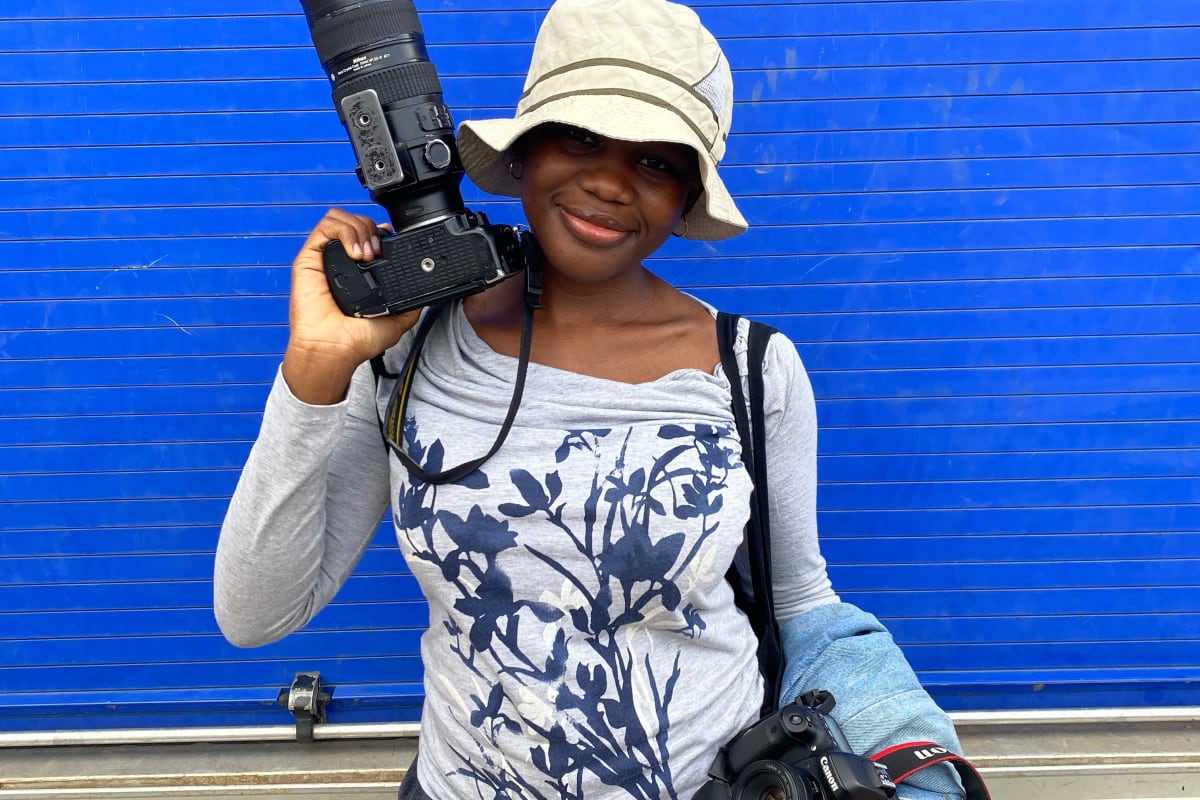There is a story I've heard many times. A young man returns from prison, not broken, not hiding, but to the sound of drums. There is jollof, there is palm wine, there is amala, there is semo. There is dancing in the compound. Olu Maintain's hit single Yahooze is renting the air and people are singing along. Young men in overflowing whites are holding tiny bottles of banned substances and nodding their heads. Their mothers and girlfriends are ferrying food from table to table, garbed in the chosen Ankara for the occasion. The neighbors – ah, the neighbors – do not whisper in judgment. Instead, they rejoice. Someone has made it, they say. In this version of success, the journey does not matter. The outcome is everything.
But the story is older, more complicated. The boy did not simply wake up and decide to steal. He grew up in a house where excuses were made for everything. He failed mathematics, and his mother blamed the teacher: "The teacher doesn't like my son." The father, in turn, blamed the school: "What do you expect from a government school?" The school pointed to the lack of funding. The circle is perfect. Meanwhile, the boy learns one lesson: accountability is a myth.
Responsibility is a foreign language we never bother to translate. Our parents, terrified of shame, terrified of lack, tell us to survive first, integrity can come later. We do not let our children sit with failure. We blame the system so much we forget to demand anything of ourselves. It is the same issue we have with our democratically elected leaders. We are our leaders, a friend said to me once and I reflexively gagged. How can you demand anything of leaders when your own sense of right and wrong is desperately warped?
The problem is that when children grow up in this web of soft justifications, they become adults who no longer recognize wrongdoing as wrong. They see wrongdoing as savvy. Sharpness. Tactics. And slowly, a society loses the ability to blush. It begins to laugh at its own decay.
Enter Glenn Quagmire from Family Guy. Quagmire is a walking caricature of moral depravity: sex-obsessed, inappropriate, frequently toeing the line between comic relief and cautionary tale. But the world of Family Guy does not exile him. He is not cast out. He is, instead, one of the gang. His antics become part of the furniture. The audience laughs. We say "that's just Quagmire." We know he's problematic. We also know he's part of the show.
Nigeria has many Quagmires. We too have become the audience that laughs. That shrugs. That says "na so e be." The Yahoo Boy, the election rigger, the professor who sells grades, the pastor with a side hustle at the ministry: they are all part of our long-running, tragicomic national series. We know they are bad. But they are our bad. Because they succeed, they are tolerated. Because they succeed, they are studied. Emulated. Even loved.
This is how the culture of complicity works. It is not loud. It is ambient. It does not demand that you commit the crime, it only asks that you stop reacting to it. That you stop asking questions. That you make space for it at your table. Eventually, that silence becomes ideology. It starts in school. A child fails the common entrance exam, and instead of trying again, the parents find someone at the ministry, pass a brown envelope, and voilà, the child's name appears. The myth of merit dies another quiet death. In the staff room, teachers swap stories of whose uncle got them into university. In the university, students swap scripts on how to pass courses without reading the texts. We laugh. We nod. We call it sharpness.
We are clever people. But cleverness without conscience becomes cunning. And when cunning becomes the metric of success, we find ourselves where we are now: living in a society that rewards not effort, but effect; not excellence, but spectacle.
This is why internet fraud – Yahoo – is no longer underground. It is aspirational. These boys wear their crimes on their sleeves: literally. Their wrists sparkle. Their Instagram bios shout. They move from fraud to fashion to music to politics, like water finding the cracks. Their success is not an anomaly, it is structure. And structure, as Audre Lorde taught us, is never neutral. Our comedians joke about it. Our pastors lay hands on it. Our musicians sing choruses to it. Even the elders who once warned us about bad company now ask, "At least he's helping his family, abi?" The scammer has become a provider. The scam has become gospel.
Like Quagmire, we've made peace with what should make us uneasy. We've woven our contradictions into comedy, into music, into memory. What used to be unacceptable is now an anecdote. Our shame has been replaced with applause.
Nigeria's culture of complicity extends beyond fraud and corruption; it thrives in our contradictions. We turn a blind eye to the Yahoo Boys who flaunt their ill-gotten wealth but recoil in performative outrage at the mere mention of homosexuality. We celebrate the pastor who builds a megachurch with stolen funds yet call for the stoning of two men caught loving each other. Our moral compass, it seems, is not broken, it is selectively applied. Sex, in all its forms, is a taboo we weaponize. We pretend it does not exist until it becomes a spectacle. The same society that winks at politicians who father children out of wedlock or professors who demand "sorting" for grades will clutch its pearls at the idea of consensual love between adults of the same gender. We whisper about the "abomination" of homosexuality while ignoring the rot in our own homes: the uncles who prey on young girls, the wives beaten silently behind closed doors, the children taught that their bodies are sources of shame.
Our discomfort with homosexuality is not rooted in morality but in fear, fear of what we do not understand, fear of confronting our own repressed desires, fear of a world where the lines we've drawn between "acceptable" and "unacceptable" might blur. We laugh at Quagmire's exploits because they align with our twisted ideals of masculinity: predatory, unchecked, and celebrated. But let a man love another man, and suddenly, we remember the Bible. Suddenly, we are custodians of virtue.
This hypocrisy is not unique to Nigeria. But here, it is amplified by our talent for collective denial. We are a people who forgive the scammer because he tithes at church, who elect the thief because he funds the town's festival, who silence the raped because "family matters stay at home." Yet we draw the line at love that threatens no one, harms no one, steals from no one. If we are to dismantle the culture of complicity, we must also confront our contradictions. It is not enough to reject fraud while upholding bigotry. It is not enough to demand accountability from leaders while denying dignity to our LGBTQ brothers and sisters. Moral imagination – the kind that dreams of a better Nigeria – must include the courage to question why some sins are punished and others are sanctified.
The way out? Perhaps it begins with honesty. To admit that our revulsion toward homosexuality is not about God or culture but about control. To acknowledge that our obsession with policing bedrooms distracts from the rot in our halls of power. To realize that a society that forgives the predator but persecutes the lover has lost its way. We cannot claim to hunger for integrity while feeding on hatred. The same silence that enables corruption enables oppression. And until we learn to blush at both, we will remain trapped in the tragic comedy of our own making.
So what's the way out? Perhaps it begins with letting our children fail. Not because we are cruel, but because we want them to learn that life is not magic, that not every door opens with charm. Perhaps it also begins with providing the environment that ensures that our kids don't fail instead of rolling them along in the pretense of care. Perhaps it means calling out mediocrity when we see it, even when it wears agbada or holds a microphone. Perhaps it means refusing to laugh when the joke stinks of rot. And this is not primarily about what we celebrate. It is also about how we raise our boys to see women. How we socialize our girls when they tell us that an older man touches them inappropriately. It is about how we once were as a people.
This is not a call to moral purity. It is a call to moral imagination. To begin to dream of a country where the ends no longer erase the means. Where complicity is not culture, and success is not just survival with a smile.


